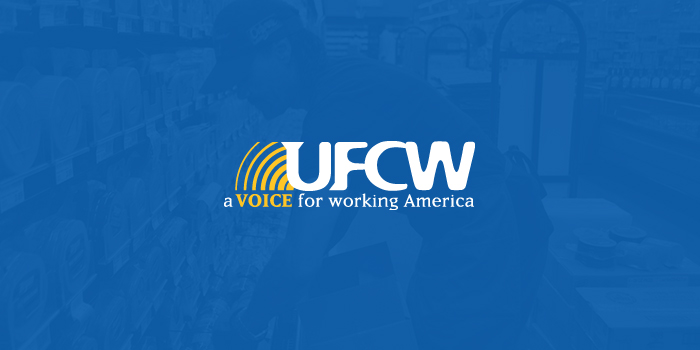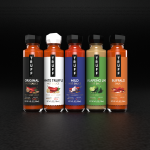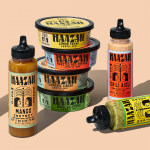No Evil Foods Fights Labor Issues

The National Labor Relations Board (NLRB) last week issued a formal complaint against plant-based protein brand No Evil Foods over accusations that the company retaliated against company workers who had attempted to form a union.
The complaint came after five former employees filed charges with the NLRB alleging they had been unfairly fired as the result of their involvement in what was an ultimately unsuccessful union vote this February.
No Evil Foods maintains its innocence. The company has until Sept. 29 to respond with a settlement offer or the complaint will go to a hearing on Dec. 7. At that time, an NLRB Administrative Law Judge could order the brand to provide the discharged workers with back pay, or else reinstate their jobs or provide similar jobs within 14 days. It may also require the company to post notices promising to not violate labor laws. No Evil Foods can appeal a decision in the two weeks following the hearing.
“We expect when No Evil Foods has the opportunity to present their evidence at trial, an administrative law judge will dismiss this complaint,” a No Evil spokesperson said.
According to a NLRB spokesperson, most of the 20,000 to 30,000 cases the agency receives annually result in a dismissal or settlement, which can include back pay or rehiring employees, before reaching a hearing.
While two NLRB cases have been used as the basis of the formal complaint, two more are still being investigated. In the complaint, Jon Reynolds and Cortne Roche say that although the reasons listed for their termination were violating social distancing and dress code policies, respectively, they were actually terminated due to their union support and spearheading a petition calling for hazard pay during the pandemic. The complaint states that around April 1, No Evil Foods “interrogated [and] created the impression of surveillance [of] employees’ protected concerted activities” before later terminating them as a result.
“By the conduct described, [No Evil Foods] has been interfering with, restraining, and coercing employees in the exercise of [their] rights,” the complaint notes.

Labor organizing issues began at No Evil Foods in 2019, when some employees at the brand’s North Carolina-based plant partnered with the United Food and Commercial Workers (UFCW) in an attempt to organize a union to secure their wages, benefits and work hours. Some employees recently told worker rights publication The Industrial Worker that their union support stemmed from No Evil’s plans to extend the work week from four days to five, while others noted the company lacked the proper equipment and staff to meet its increased capacity: last year the company expanded into a 16,000 square foot facility, to which it has already added 4,000 square feet.
However, in an election conducted February 13 by the NLRB, 43 employees ultimately voted against unionizing while 15 supported it — short of the 30 employees needed to pass a union vote, the NLRB said.
No Evil Foods, founded in 2014, has this year seen sales grow 280% year-over-year and is now sold in 5,000 stores. No Evil has also almost doubled its headcount since February. Co-founder and CEO Mike Woliansky cited growing pains as a cause for strained employee communications before the union vote.
“We’ve grown so quickly we haven’t always done a great job of showing you just how far we’ve come and how we’ve made your lives better,” Woliansky told employees.

Since the failed union vote, there was some backlash: websites and social media accounts like MoEvilFoods emerged, condemning the brand’s labor tactics. Many point to the irony of No Evil’s use of marketing slogans such as “future revolutionist” and progressive-leaning product names like El Zapatista, referencing the Chiapas, Mexico-based socialist political and militant group the Zapatista Army of National Liberation.
The company, meanwhile, maintains that it is not against unions, but did not feel forming one — in particular, with UFCW — was the right choice for its employees. Executives pointed to UFCW’s work with meat producers like Smithfield to discourage the vegan brand’s employees from joining UFCW.
“While we acknowledge the contributions of the labor movement to our society, we also know that not all unions are good – and we understand that’s an uncomfortable conversation for some,” the company said in a statement. “We believe that unions aren’t the only way to protect and promote workers rights.”
The company said that this month it had made a COVID-19-related hazard pay increase of $2.25/hour permanent, raising average line worker pay to $17/hour. The brand also covers 100% of employees’ health care costs, along with providing paid time off, sick leave and expanded family leave. As part of its efforts to fend off negative publicity surrounding these recent issues, the company has also supplied recorded interviews with satisfied employees as part of its charm offensive.
In one, Seth Wilhite, a cook at No Evil who has worked at the brand for two years, said that the co-founders’ “open door policy” with employees has led to better health insurance and other improvements.
“The more I’ve seen the company grow and the more I’ve seen our production flow grow I’ve also seen a lot more influence to help employees and to keep that side of the company going as well,” Wilhite said. “They’re really good at working with people.”
















